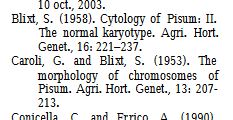A year and a half ago, I took a research detour into the career of Gösta Caroli. I had come across a reference which suggested that Caroli had been tried, condemned and executed by the British. This was news to me since there is no evidence of a trial, nor an execution. In fact, according to the records, Caroli was repatriated back to Sweden in August 1945. A year later, he married Gerta Bergmann and two years later, the couple had a son. According to Swedish records, Caroli died in 1975 in Asmundtorp. It would seem to be a slam-dunk case but… there are always rumours of cover-ups, etc.
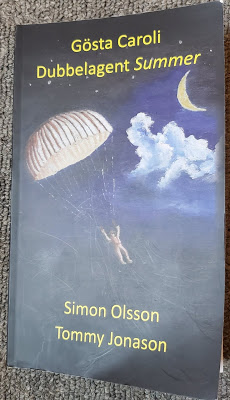
I wrote a couple of blogs about Caroli, one on his ill-fated escape attempt and one on his life and career. Readers are encouraged to take a look at those two blogs before continuing with this one…
Gösta Caroli – Dubbelagent SUMMER
Whilst researching the two previous blogs, I had come across another book by Simon Olsson and Tommy Jonason. I was familiarwith the first book these two Swedish authors had published in English: Double Agent TATE (Caroli’s friend and espionage colleague). As it turns out, they had also self-published their book on Caroli in Swedish in 2015 via Vulkan.
I had tried to order a copy of the book but the Vulkan site only shipped within Sweden. I had also tried to contact one of the authors via Facebook and recieved no reply. Finally, I had tracked down Caroli’s grandson and his wildnerness camp in Sweden and reached out via email but… received no reply.
A couple of months ago, I cobbled together a message in Swedish (using Google Translate) and emailed the Vulkan book publishers asking if I could purchase the Caroli book and have it shipped to Canada. After much back and forth… I was successful and the book arrived in my mail box in late March. Success!!!!
The Book

The book is a soft-cover paperback and while published via Vulkan, it is clearly a self-published book in line with Lulu or Blurb here in North Amercia. There are a few issues with the physical book itself. The glue binding is extremely tight and the inside gutter of the pages is very narrow making it very hard to open the book and read it comfortably. I have to work hard to keep the book open to the point where I can read the words along the inner margins. It then comes as no surprise that, within an hour of reading the book, pages were already starting to come loose from the binding. Sigh.
The cover is also obviously home-made and, I have to say, looks like something a child might draw. I had a look at the moon phases calendar for 6 September 1940 (the night Caroli parachuted into England) and it was a waxing crescent, which is the opposite of what the book cover depicts (a waning crescent).
As for the contents of the book, there are a few things lacking:
- no author bios – this is always helpful for assessing author expertise, although in this instance, we can just look at the TATE book
- no acknowledgements – helpful for sleuthing out new contacts
- no index
- no photo credits – we have no idea of the source of the photographs. It is clear that some must come from Caroli’s family while others are from the National Archives. I’m going to guess that the authors didn’t pay the fee for using photos from Kew.
- no folios for the footnotes – they simply list the KV file number, but no attempt to direct the reader/researcher to the relevant folio, or even the context of the document referenced (date, source, etc.)
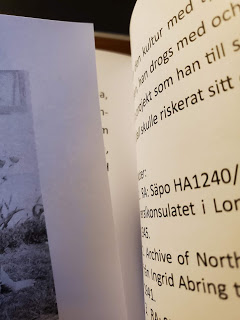
Now, I know how much effort goes into researching and writing a book. I also know how hard it is to get a book accepted for publication and then get the manuscript ready for publication. Still, I wished that the authors had devoted a bit more time to addressing some of the issues noted above.
Table of Contents
Before we begin, I should say that I don’t know a word of Swedish. The language obviously shares some roots with German as I can pick out a few words here and there and, rather surprisingly, get the gist of some paragraphs. I am, however, relying heavily on Google Translate to translate Swedish into English.
First, let’s take a look at the book’s Table of Contents which give us an overview of the book and where it will take us.
Inledning – Introduction
Prästsonen från Norra Vram – Priest’s Son from Norra Vram
Bland silverrävar i Kanada och Storvreta – Among Silver Foxes in Canada and Storvreta
I 1930-talets Europa – In 1930s Europe
Värvad till Abwehr – Referred to Abwehr
Abwehr – Abwehr
Nicolaus Ritter – Nicolaus Ritter
Snows – SNOW
Snows fall – SNOWs Fall
My Eriksson – My Eriksson
Agent i ett Fredstida Storbritannien – Agent in Peacetime Great Britain
Den andra resan – The Second Trip
Nya uppdrag – New Missions
S/S Mertainen – SS Mertainen
Malmtrafiken – Ore Traffic
Från Narvik – From Narvik
Tyskt flyg angriper – German Air Strikes
Fartygets forsatta öde – The Fate of the Ship
Kristiansund bombas – Bombing of Kristiansund [Norway]
Operation Sjölejon – Operation Sealion
Operation förbereds – Preparation of Operation
Slaget om Storbritannien – Battle of Britain
Invasionsplanerna avbryts – Invasion Plans Cancelled
Hade invasionen varit mölig? – Had the Invasion been Fun?
Operation Lena – Operation Lena
Agenter – Agents
Konklusioner – Conclusions
Vardagsliv i Storbritannien – Everyday Life in Great Britain
Blitzen – The Blitz
Förberedelser i Tyskland – Preparations in Germany
Gösta Utbildas – Gösta’s Training
Ritters medarbetare samlas – Ritter’s Employees Gather
I ett ockuperat Paris – In Occupied Paris
Det första försöket – The First Attempt
Operationen genomförs – Operation Carried Out
Landning i Storbritannien – Landing in Great Britain
Arresterad – Arrested
Camp 020 – Camp 020
Camp 020, Latchmere House – Camp 020, Latchmere House
“Tin-Eye” Stephens – “Tin-Eye” Stephens
Förhör – Interrogation
London Reception Centre – London Reception Centre
London Cage – London Cage
Dubbelagenten Gösta – Double Agent Gösta
Camp 020 – Camp 020
Tyskarnas bild av Caroli – German Image of Caroli
Flyktförsök – Attempted Escape
Efterspel – Epilogue
Tate – TATE
“Tate” i arbete – “TATE” at Work
Double-Cross organisationen – Double Agent organization
Målsättning – Aims
Viktiga principer – Important Principles
Resultat – Results
Åter i Sverige – Back in Sweden
Appendix I – Förhör med Caroli – Appendix I – Interrogation of Caroli
[Appendix II – Angående Chiffrering – Appendix II – Regarding Encryption] (not in TOC)
Appendix III – Agenter och dubbelagenter – Appendix III – Agents and Double Agents
Källförteckning – Bibliography
Otryckta källor – Unpublished Sources
Tryckta källor – Published Sources
Sent Back to Sweden
My primary interest in ordering this book was to find out what happened to Caroli after the war and put to rest the rumours that he was secretly executed by the British during the war. As such, I focused on the last chapter – Back in Sweden.
I transcribed the Swedish text of this chapter into a Word document and then ran it piece by piece through Google Translate, then smoothed over some of the grammatical hiccups. I’ll include the Swedish here, just in case some Swedish speaking person reads this blog and wants to offer some corrections on the translation!
I am providing some key photographs as well. I had hoped to scan them on my scanner but… the tight spine makes it almost impossible so I just took pictures of them. In the translations below, I am also providing abbreviated footnote references so the interested reader has a sense of the sources.
“Härmed får jag vördsamt meddela, att generalkonsulatet genom härvarande inrikesministerium nyligen erfarit, att en svensk medborgare Gösta Caroli, född i Norra Vram, Malmöhus län den 6 Nov 1902, sedan September 1940 på grund av olovlig underättelseverksamhet hällits i fängsligt förvar i Storbritannien. En tjänsteman i ministeriet har vid samtal med en representant för generalkonsulatet uppgivit, att Caroli den 5 September 1940 landsattes i Storbritannien från ett tyskt flygplan, samt att det av hans utrustning framginge, att han härstädes avsåge att bedriva spioneri för tysk räkning.”[1]
I hereby respectfully announce that the Consulate General through the present Ministry of the Interior has recently learned that a Swedish citizen Gösta Caroli, born in Norra Vram, Malmöhus County on 6 Nov 1902, since September 1940 has been detained in prison in the United Kingdom for illegal activities. An official in the ministry stated during a conversation with a representative of the Consulate General that on 5 September 1940 Caroli landed in the United Kingdom from a German aircraft and that his equipment indicated that he was hereby intending to carry out espionage on behalf of the Germans. [1 – Swedish Royal Archives]
The chapter starts with a quote from the Swedish Consulate General in London dated 18 August 1945 and contained within the Royal Archives in Sweden. It seems pretty straightforward and it is interesting to note that this is a Swedish sourced document.
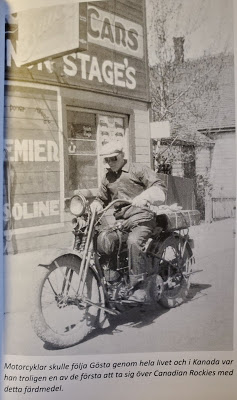
Ovanstående meddelande skickades från af Petersen vid det svenska generalkonsulatet i London till utrikesdepartementet i Stockholm den 18 augusti 1945. Kopior på meddelandet skickades därifrån till Gösta Engzell, chef för UD:s rättsavdelning, E. Hallgren vid Överståthållarämbetet och till kriminalavdelningen vid Stockholms polis som i sin tur underrättade landsfogde Otto Rosengren i Malmö. Stockholmspolisen konstaterade att ingen kriminell aktivitet var känd om Caroli i Sverige men uppmanade polisen i Helsingborg att göra en utredning om honom.
The above message was sent from af[?] Petersen at the Swedish Consulate General in London to the Ministry of Foreign Affairs in Stockholm on August 18, 1945. Copies of the message were sent from there to Gösta Engzell, Head of the Ministry of Foreign Affairs, E. Hallgren at the Supreme Court Office and to the Criminal Division at Stockholm Police, and in turn, Counsel Otto Rosengren informed Malmö. Stockholm police found that no criminal activity was known about Caroli in Sweden but called on the Helsingborg police to investigate him.
The Consulate General’s letter obviously generated a flurry of activity in Sweden about the soon-to-be repatriated Caroli. The police conducted some background checks and were set to interview him.
Någon information om Caroli hade sedan 1940 inte meddelats svenska myndigheter eller hans mor som nu bodde i Billesholm, han kunde lika gärna ha varit död. Ett brev som den brittiska postcensuren snappade upp i mars 1941 vittnar om detta, systern Ingrid skrev då till en väninnan i Storbritannien att “Gösta is gone a year ago in Germany, we don’t know how”[2], det är inte konstigt att meddelandet från konsulatet väckte känslor inom familjen. Caroli skulle nu deporteras från Storbritannien och det brittiska inrikesministeriet överlämnade ansvaret över honom till generalkonsulatet för att ordna de praktiska detaljerna. Dagen innan hade ett provisoriskt svenskt pass utfärdats och det hade bestämts att deportationen skulle genomföras med båt från London den 23 augusti. Själv hade Caroli via de brittiska myndigheterna framfört önskemålet om att hans bror, kyrkoherden Gunnar Caroli i Norra Vram, skulle underrättas om hans hemkomst.[3] Vi kan bara spekulera i vad Gösta Caroli tänkte inför hemfärden, hans över fem år långa frånvaro utan några som helst underrättelser till sin mor hade med all sannolikhet satt sina spår. Skulle saknaden göra återseendet med familjen till en känslosam och glädjande återförening, eller skulle det vara helt andra känslor som han skulle bli bemött av? Han var väl medveten om att hans bror Gunnar inte delade hans sympatier för den tyska regimen och hur skulle han nu bli bemött när det var känt att han arbetat som agent för Tyskland? Svaret på frågan skulle snart få sitt svar.
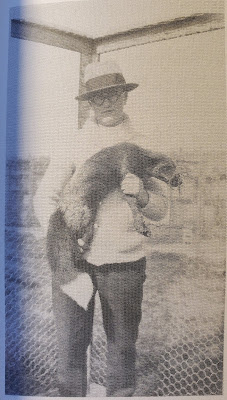
No information about Caroli had been communicated since 1940 to the Swedish authorities nor his mother who now lives in Billesholm, he could just as well have been dead. A letter that the British Postal Censor intercepted in March 1941 testifies to this, his sister Ingrid then wrote to a friend in the UK that “Gösta is gone a year ago in Germany, we do not know how” [2 – Archive of Northamptonshire Police], it is not strange that the message from the consulate aroused feelings within the family. Caroli was now deported from the United Kingdom and the British Ministry of the Interior handed over the responsibility to him to the Consulate General to arrange the practical details. The day before, a provisional Swedish passport had been issued and it was decided that the deportation would be carried out by boat from London on 23 August. Caroli himself, through the British authorities, had expressed the wish that his brother, the church pastor Gunnar Caroli in Norra Vram, be informed of his return. [3 – Swedish Royal Archives] We can only speculate on what Gösta Caroli was thinking before leaving home, his absence of more than five years without any informations to his mother had in all likelihood left its mark. Would the lack make the reunion with the family an emotional and joyous reunion, or would it be completely different feelings that he would be faced with? He was well aware that his brother Gunnar did not share his sympathies for the German regime, and how would he now be treated when it was known that he worked as an agent for Germany? The answer to the question would soon have its answer.
Clearly, Caroli’s family knew nothing about his espionage adventures, only that he had gone to Germany and vanished, with no communication to them. Caroli requested that his brother, Gunnar, be notified of his return. He embarked on the SS Ring on 23 August 1945 from England with a provisional Swedish passport.
Arriving back in Sweden
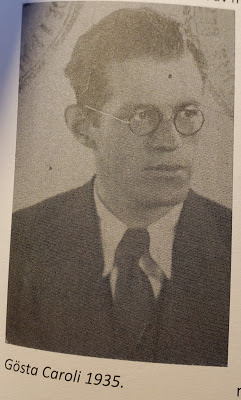
Den 1 september 1945 anlade fartyget s/s Ring i Helsingborgs hamn och bland passagerarna fanns Caroli som efter många år i fångenskap åntligen steg iland i Sverige som en fri man. Före dess att han fick träffa familjen fördes han emellertid till Säkerhetspolisens kontor i Helsingborg. Där konstaterades att han hade med sig ett “för honom den 17.8.45 av Kungl. Svenksa Generalkonsulatet i London utfärdat med fotografi försett provisoriskt svenskt pass nr 7/45, giltigt för en enkel resa till Sverige” samt tolv svenska kronor. Kriminalöverkonstapel Carl Palm höll därefter ett längre förhör dar Caroli fick redogöra för sin bakgrund och om vad han varit med om i Tyskland och Storbritannien. Palm noterade senare, den 5 September i en rapport som sändes till utrikesdepartementet och försvarsstaben, att Caroli “nekade bestamt, att han vid något tillfälle lämnat några uppgifter angående Sverige eller svenska förhållanden vid förhör hos engelsmännen eller under sin anställning hos tyskarna”. På frågan om sina framtida planer svarade Caroli att han skulle söka anställning inom jordbruket och at than tills vidare skulle bo hos modern I Billesholm. För den svenska polisen var Caroli ointressant, inget tydde på att han skulle ha gjort sig skyldig till något kriminellt i Sverige och klockan 20.00 samma dag släpptes han. Först vid ankomsten denna dag hade brodern Gunnar underrättats och han mötte nu Gösta hemma hos modern i Billesholm. Mottagandet blev allt annat än varmt, det var inledningsvis inga trevliga ord som mötte Gösta, han blev rent ut sagt regelrätt utskälld av Gunnar. For Gunnars son, då endast fem år gammal, var detta hans första möte med sin farbror och han minns än idag att han blev oerhört rädd för Gösta.[4] Formodligen var återseendet för modern Anna mer positivt, kärleken till sonen kunde inte rubbas oavsett vad han gjort sig skyldig till. Med tiden skulle även förhållandet mellan familjen och Gösta lugna sig och återgå till det normala, men Gösta skulle torts detta aldrig komma att fä en riktigt lätt tillvaro.
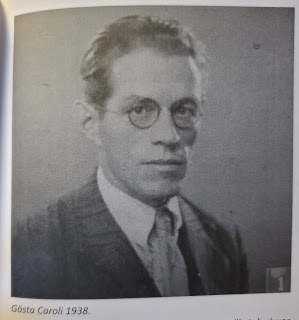
On September 1, 1945, the ship SS Ring sailed into the port of Helsingborg and among the passengers was Caroli who, after many years in captivity, finally ascended ashore in Sweden as a free man. However, before he got to meet the family, he was taken to the Security Police’s office in Helsingborg. It was stated that he had on him “for him on 17.8.45 by the Royal Swedish Consulate General in London issued with photograph provisionally provided Swedish passport no. 7/45, valid for a single trip to Sweden” and twelve Swedish kronor. Carl Palm then held a further hearing where Caroli had to explain his background and what he had been doing in Germany and the UK. Palm later noted, on September 5 in a report sent to the Foreign Ministry and the Defense Staff, that Caroli “firmly denied that he had at any time provided any information regarding Sweden or Swedish conditions during interrogations with the English or during his employment with the Germans”. When asked about his future plans, Caroli replied that he would seek employment in agriculture and at that time stay with his mother in Billesholm. To the Swedish police Caroli was uninteresting, there was no indication that he was guilty of anything criminal in Sweden and at 8 pm the same day he was released. It was only on arrival that day that brother Gunnar had been informed and he was now meeting with Gösta at his mother’s house in Billesholm. The reception was anything but warm, there were initially no nice words that met Gösta, he was, in fact, outright cursed by Gunnar. For Gunnar’s son, then only five years old, this was his first meeting with his uncle and he still remembers today that he became extremely afraid of Gösta. [4 – interview with Caroli’s nephew] Probably the return for mother Anna was more positive, the love for her son could not be upset no matter what he owed her. In time, even the relationship between the family and Gösta would calm down and return to normal, but Gösta would never get a really easy life.
Caroli arrived in Helsingborg on 1 September 1945 and was questioned by the police. The police has obviously found no criminal activities in Caroli’s past and relesed him after a few hours. It would appear that the Caroli family was quite upset with the return of the prodigal son, although his mother likely gave him a warmer welcome. Interesting to note that Caroli planed to seek a job in agriculture.
Questions from the Swedish Police
![Left - Gösta married Greta Bergmann in 1946 Right - Gösta Caroli, likely one year later [1947] (Olsson & Jonason - Gösta Caroli: Dubbelagent Summer)](https://josefjakobs.info/wp-content/uploads/2021/02/Gosta2Bbook2B14.jpg)
För den svenska polisen var ärendet Caroli emellertid inte helt avslutat. På begäran av statspolisintendent Georg Thulin och kriminalkonstapel Einar Netz vid kriminalpolisens 6:e rotel i Stockholm genomförde kriminalöverkonstapel Carl Palm och kriminalkonstapel Olle Olsson ytterliggare ett förhör den 4 oktober. Palm och Olsson besökte då Caroli i hans bostad i Billesholm och frägade särskilt om den Petersen som utbildat Caroli i telegrafi och om hans danska kollege Wolfgang Schmidt. Polisen misstänkte att Petersen var identisk med den tyska medborgaren Herbert Petersen som 1942 och 1944 rest mellan Berlin och de tyska legationerna i Stockholm och Helsingfors. Flera saker tydde på att Herbert Petersen arbetade för Abwehr men detta hittades aldrig några säkra bevis för, inte heller att han skulle vara identisk med Carolis lärare i telegrafi.[5] Trots misstankarna fick Herbert Petersen senare svenskt medborgarskap och han avled i Malmö 1981.[6]
For the Swedish police, however, the case Caroli was not completely closed. At the request of State Police Superintendent Georg Thulin and Criminal Appellant Einar Netz at the Stockholm Police’s 6th Division in Stockholm, Criminal Superintendent Carl Palm and Criminal Appellant Olle Olsson conducted a further hearing on October 4. Palm and Olsson then visited Caroli at his residence in Billesholm and in particular asked about the Petersen who trained Caroli in telegraphy and about his Danish colleague Wolfgang Schmidt. The police suspected that Petersen was identical to German citizen Herbert Petersen who had traveled between Berlin and the German legations in Stockholm and Helsinki in 1942 and 1944. Several things indicated that Herbert Petersen worked for the Abwehr, but this was never found to be any reliable evidence, nor that he would be identical to Caroli’s teacher in telegraphy. [5 – Swedish Royal Archives] Despite the suspicions, Herbert Petersen later gained Swedish citizenship and he died in Malmö in 1981. [6 – Swedish Death Book]
After some reflection, the Swedish police wanted to question Caroli about one Herbert Petersen, a German who had apparently worked for the Abwehr and served on the German Legation in Sweden. Was this man the same as Caroli’s instructor in radio telegraph skills? Apparently not.
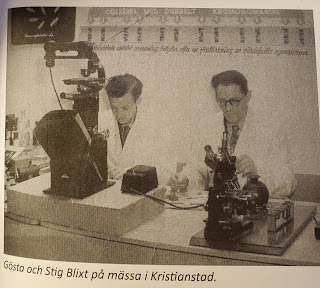
Spy turned Maize Geneticist
Efter detta lämnades Caroli av den svenska polisen och han kunde snart återgå till ett någorlunda normalt liv. I mitten av mars 1946[7] fick han arbete på Weibullsholms växtförädlingsinstitut i Landskrona, detta som trädgårdsarbetare och ciceron på grund av sina goda språkkunskaper.[8] På Weibullsholms träffade han även sin blivande maka, den elva år yngre Greta Bergman från Bro i Stockholm som tidigare studerat i Båstad, och i november 1946 gifte de sig och fick två år senare en son. Att Gösta hade andra kvalitéer än språk skulle snart uppmärksammas på Weibullsholm och efter en tid, den 1 September 1947, fick han anställning som assistent vid kromosomlaboratoriet där han började genforska med ärtplantor som grundmaterial. Forskningen var nära knuten till Lunds universitet och resulterade i ett flertal artiklar mellan 1952 och 1955. Caroli var försteförfattare på tre vetenskapliga uppsatser i facktidskriften Agri Hort Genetica tillsammans med Stig Blixt och i en var han ensam författare. I den första beskrev han en metod att ta fram de fjorton kromosomerna hos ärtplantan med oxykinolin, i den andra att det gick att klassa dem morfologiskt och identifiera kromosomerna. I de två sista påvisar han med olika metoder ett utbyte av delar mellan kromosom nr III och V. [9, 10, 11, 12] Rätt avancerat således och uppenbart tillräckligt avancerat för en akademisk examen, något som framkommer i hans korrenspondans med professor Arne Müntzing vid Lunds universitets institution för ärftlighetsforskning. Gösta sökte hösten 1950 en tjänst som assistent vid Institutionen samtidigt som han ville avlägga kandidatexamen i botanik, statistik och genetik vid universitetet.[13] Hans chanser var mer än goda, men då lönen var låg och Gösta ville satsa på ett eget trädgårdsmasteri drog han tillbaka sin ansökan i sista stund, något professor Müntzing beklagade. I ett brev bad han Gösta att tänka över sitt beslut och ville att han vid tillfälle skulle söka upp honom i Lund för att diskutera saken[14], något som dock inte ändrade Göstas beslut. Blixt, född 1930, började som laboratorieassistent på Weibullsholm redan som 15-äring och skulle samtidgt till stor del grunda sin karriär på just den ärtgenetiska forskning han utförde tillsammans med Caroli. Utan någon som helst grundutbildning, men med särskilt tillstånd från kungen, disputerade Blixt vid Lunds universitet 1972 där han sedermera blev professor i genetik, han pensionerade sig först 1995 och avled sommaren 2009 i Landskrona. Då hade Weibulls köpts upp av företaget Cardo 1976.
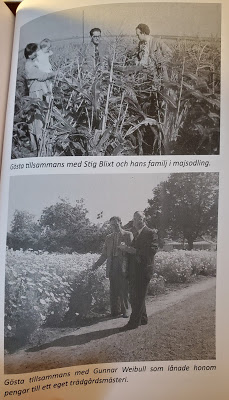
After this Caroli was left alone by the Swedish police and he could soon return to a reasonably normal life. In mid-March 1946 [7 – letter from Caroli to Müntzing] he got a job at Weibullsholm’s plant breeding institute in Landskrona, this as a gardener and guide because of his good language skills. [8 – interview with Caroli’s son] At Weibullsholms he also met his future wife, eleven years his junior, Greta Bergman from Bro in Stockholm who had previously studied in Båstad, and in November 1946 they married and had a son two years later. That Gösta had qualities other than language would soon be noticed at Weibullsholm and after a time, on September 1, 1947, he was hired as an assistant at the chromosome laboratory where he began researching pea plants as a base material. The research was closely linked to Lund University and resulted in several articles between 1952 and 1955. Caroli was the first author on three scientific papers in the professional journal Agri Hort Genetica together with Stig Blixt and in one he was the sole author. In the first, he described a method for obtaining the fourteen chromosomes of the pea plant with oxyquinoline, in the second that it was possible to classify them morphologically and identify the chromosomes. In the last two, he demonstrates, by various methods, an exchange of parts between chromosome No. III and V. [9, 10, 11, 12 – all references to Caroli’s published papers] Thus quite advanced and obviously sufficiently advanced for an academic degree, which is evident in his correspondence with Professor Arne Müntzing at Lund University’s Institute for Hereditary Research. In the autumn of 1950, Gösta applied for a position as an assistant at the Department, at the same time as he wanted to complete his bachelor’s degree in botany, statistics and genetics at the university. [13 – letter of recommendation from Herbert Lamprecht] His chances were more than good, but when his salary was low and Gösta wanted to invest in his own nursery, he withdrew his application at the last moment, something Professor Müntzing lamented. In a letter he asked Gösta to think about his decision and wanted him to seek him out in Lund to discuss the matter [14 – letter from Müntzing to Caroli], which however did not change Gösta’s decision. Blixt, born in 1930, started as a laboratory assistant at Weibullsholm as a 15-year-old and would at the same time largely base his career on the exact pea genetic research he did with Caroli. Without any basic education, but with special permission from the King, Blixt did his dissertation at Lund University in 1972, where he subsequently became professor of genetics, he retired in 1995 and died in the summer of 2009 in Landskrona. By then Weibulls had been acquired by the company Cardo in 1976.
We now get to the juicy bits. After his return from England, Caroli got a job at an agricultural firm where he made quite a name for himself conducting genetic research on pea plants. He even published some scientific papers which are still being cited in scientific journals today. He also married Greta Bergmann in 1946 and the couple had a son in 1948. Caroli eventually left the agricultural firm and started his own plant nursery.
Lingering Issues from his Parachute Jump
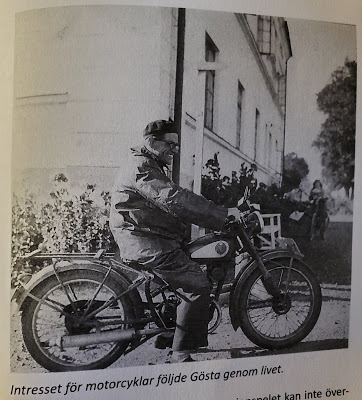
För Caroli gick det sämre, strax innan dess att han tackade nej till tjänsten vid Lunds universitet hade han drabbats av dubbelseende och yrsel[15] vilket härledes till en tidigare blödning på lilla hjärnan, med all sannolikhet uppkommen då han vid landningen i Storbritannien den 6 september 1940 slogs härt i huvudet av sin radio. När skadan blev allt allvarligare och han inte längre kunde se i mikroskopen slutade han på Weibullsholm och köpte istället ett mindre trädgårdsmästeri. Direktör Gunnar Weibull ställde själv upp med lånet till köpet och trädgårdsmästeriet växte med åren till en relativt stor verksamhet. I början importerade Gösta olika sorters jordgubbsplantor från Tyskland varifrån även en stor del av arbetskraften kom. Under sina tidigare resor i Sydeuropa hade han fått erfarenhet av mer excotiska växter vilket inspirerade honom att även börja med odling av paprika och majs, något vid tiden nästan helt okänt i Sverige.[16] Skadorna på hjärnan skulle emelltertid med åren bara bli värre och varre, de påverkade balanssinnet och de sista tio åren av sitt liv var han nästan helt rullstolsbunden. Under lång tid försökte han få pension och ersättning för sin skada från de västtyska myndigheterna, detta med hjälp av en av de tidigare medfångarna i Huntercombe som kommit honom nära och som verkligen brydde sig om hans öde. Mannen i fråga, Graf Ulrick Finck von Finckenstein, hade i november 1940 landstigit på ön Jan Mayen vid Grönland som ledare för Sonderkommando Finkenstein vilken tillhörde Abwehrstelle Stettin.[17] Gruppen skulle sända väderleksrapporter till Abwehr, men verksamheten blev kort och redan efter ett par dagar tillfängatogs gruppen av brittiska Royal Navy. Efter kriget blev Finckenstein advokat på den nordvästtyska orten Norden och kom under lång tid att föra Göstas talan mot de västtyska myndigheterna. Alla försök kom emellertid att bli förgäves och någon pension eller ersättning betalades aldrig ut, istället överräckte Finckenstein ett gammalt järnkors från första världskriget till Gösta, han var värd mer men inget fanns att göra. Även den tidigare Abwehrchefen i Hamburg, Herbert Wichmann, som sett till att alla agenter fått status som tyska soldater, var förargad över att det enda Caroli fick blev ett järnkors.[18] Bättre gick det med de brittiska myndigheterna som gav honom en mindre pension för de tjänster han utfört för dem. Den pension han fick var långtifrån stor, de sista åren av hans liv levde han knapert och flera gånger fick hans släktingar hjälpa honom. Nikolaus Ritter sammanfattade 1972 i sina memoarer att “Caroli överlevde sin fångenskap i Storbritannien men återhämtade sig aldrig från de skador han fick vid fallskärmshoppet. Han bor idag i Sverige, är svårt sjuk och har helt tappat sitt minne. Sin medfånge, en före detta Abwehrofficer, som han delade cell med och som återgivit Carolis historia för mig, berättade att han senare flera gånger besökte honom och försökte hjälpa honom så gott han kunde.”[19] Gösta Caroli avled i Asmundtorp torsdagen den 8 Maj 1975 och begravdes i en enkel grav.
![Top: Gösta and his family [likely wife and son] Bottom: One of the last photographs, here at Gösta](https://josefjakobs.info/wp-content/uploads/2021/02/Gosta2Bbook2B18.jpg)
For Caroli, things took a turn for the worse, just before he refused the position at Lund University, he had suffered from double vision and dizziness [15 – interview with Caroli’s son], which was attributed to a previous bleed on the cerebellum, most likely when he landed in the UK on 6 September 1940 and was hit in the head by his radio. When the damage became more serious and he could no longer see through the microscope, he quit his job at Weibullsholm and bought a smaller nursery instead. Director Gunnar Weibull made the loan for the purchase himself and over the years the nursery grew into a relatively large business. Initially, Gösta imported different types of strawberry plants from Germany, from which a large part of the labor force also came. During his previous travels in Southern Europe, he had gained experience with more exotic plants, which inspired him to also start growing peppers and corn, something at that time almost entirely unknown in Sweden. [16 – interview with Caroli’s son] However, the damage to the brain over the years would only get worse and worse, affecting his sense of balance and the last ten years of his life he was almost completely wheelchair-bound. For a long time, he tried to get a pension and compensation for his injury from the West German authorities, with the help of one of the former prisoners in Huntercombe who became close to him and who really cared about his fate. The man in question, Graf Ulrick Finck von Finckenstein, had in November 1940 landed on the island of Jan Mayen in Greenland as leader of the Sonderkommando Finkenstein, which belonged to Abwehrstelle Stettin. [17 – Pryser, Tore: Hitlers hemmelige agenter (Hitler’s Secret Agents), page 79 – Norwegian book (2001) not in the Bibliography] The group was to send weather reports to the Abwehr, but the expedition was a failure and after a few days, the group was captured by the British Royal Navy. After the war, Finckenstein became a lawyer in the northwestern German city of Norden and for a long time brought the lawsuit of Gösta against the West German authorities. However, all attempts were in vain and no pension or compensation was ever paid, instead Finckenstein handed over an old Iron Cross from the First World War to Gösta, he was worth more but there was nothing to be done. Also the former Abwehr commander in Hamburg, Herbert Wichmann, who ensured that all agents received the status of German soldiers, was annoyed that the only thing Caroli received was an Iron Cross. [18 – Swedish newspaper 1976] It went better with the British authorities who gave him a smaller pension for the services he performed for them. The pension he received was far from great, the last years of his life he barely eked out a living and his relatives had to help him several times. In 1972, Nikolaus Ritter summarized in his memoirs that “Caroli survived his captivity in the UK but never recovered from the injuries he suffered at the parachute. He lives in Sweden today, is seriously ill and has completely lost his memory. His colleague, a former Abwehr officer with whom he shared a cell and who told Caroli’s story to me, told me that he later visited him several times and tried to help him as best he could. “[19 – Ritter’s book, page 315] Gösta Caroli died in Asmundtorp on Thursday 8 May 1975 and is buried in a simple grave.
I had come across sources which indicated that the injuries Caroli suffered from his parachute descent into England, lingered for decades. And this section seems to confirm that. The story goes that when Caroli landed, the radio case that was strapped to his chest struck him on the chin, which would have smashed his head backwards. This is consistent with a bleed in the cerebellum which can, indeed, worsen over time. It is interesting to note the connection between Ritter, von Finckenstein and Caroli. This explains how Ritter acquired his story about the landing of Caroli, which was highly inaccurate. Clearly, Caroli had developed some sense of loyalty to the British or, perhaps, a hatred for the Germans, who had sent him on such an ill-fated mission. It would appear that he told a cover story to Finckenstein. And, again, we have the note that Caroli died 8 May 1975, buried in a simple grave, presumably in Asmundtorp.
Not a Dedicated Nazi
Hans betydelse i det tysk-brittiska spionspelet kan inte överskattas; han var den första tyska agenten att landa med fallskärm i Storbritannien, omständigheterna med fiktiva hjälpinsatser av de agenter som tyskarna trodde var i deras tjänst stärkte förtroendet för deras, som de trodde, agentverksamhet i Storbritannien; han gav övardelig hjälp och erfarenhet när det gällde hur Double-Cross-systemet skulle byggas upp – britterna erhöll stor lärdom av hans fall – och den information han avslöjade i förhör, ledde till att andra agenter kunde gripas och värvas som viktiga dubbelagenter. Framför allt gäller detta hans vän Wulf Schmidt/Tate, som blev den dubbelagent som hade längst karriär under kriget. Hur tyskarna värderat Carolis insats framkom i en intervju med Herbert Wichmann 1976, hans omdöme om honom var: “en av de bästa agenter vär underrättelseavdelning i Hamburg någonsin haft.”[20] Någon hängiven nazist var han emellertid knappast och han var aldrig organiserad i något parti. Istället följde han den kultur med tysk influens som gällde i Sverige vid den tiden, han drogs med och blev alltmer involverad i Tyskland och ett projekt som han till sist inte kunde dra sig ur, eftersom han i såfall skulle riskerat sitt eget liv.
His significance in the German-British spy game cannot be overstated; he was the first German agent to parachute into Britain, the fact of fictitious relief efforts by the agents who the Germans believed to be in their service strengthened confidence in their, as they believed, agent activities in the UK; he provided immense help and experience when it came to how the Double-Cross system was to be built – the British learned a great deal from his case – and the information he revealed in interrogation led to other agents being apprehended and recruited as important double agents. This is especially true of his friend Wulf Schmidt/TATE, who became the double agent who had the longest career during the war. How the Germans valued Caroli’s efforts was revealed in an interview with Herbert Wichmann in 1976, his opinion on him was: “one of the best agents our intelligence department in Hamburg has ever had.” [20 – Swedish newspaper 1976] However, he was hardly a dedicated Nazi and he was never organized in any party. Instead, he followed the culture of German influence that prevailed in Sweden at the time, he was drawn in and became increasingly involved in Germany and a project he eventually could not pull out of, as he would in any case risk his own life.
I’m a bit intrigued by the comment that information from Caroli “led to other agents being apprehended and recruit as important double agents”. I’m aware of TATE, obviously, and possibly GOOSE/GANDER although I wouldn’t necessarily call him important. Not aware of others… but I might have to transcribe and translate other sections to get clear on that.
Conclusion
I hope that this blog has helped to clear up the ultimate fate of Gösta Caroli. He was indeed deported back to Sweden in 1945, married and had one son. He embarked on a relatively successful career in agriculture, first studying pea genetics and then opening his own nursery where he grew corn and peppers. The head injury he sustained during his parachute descent into England in 1940 would worsen over time. Caroli passed away in Asmundtorp in 1975.
I am now eyeing some other key sections in this book. If any readers have a burning interest in any particular section, let me know. I don’t now that I can scan any pages of this book, it strongly resists being forced to open flat and I’m afraid the whole thing might burst asunder. On second thought, that might not be a bad thing… at least then I could run it through my scanner feeder.
I posted a follow-up blog with Caroli’s pre-espionage career here.

